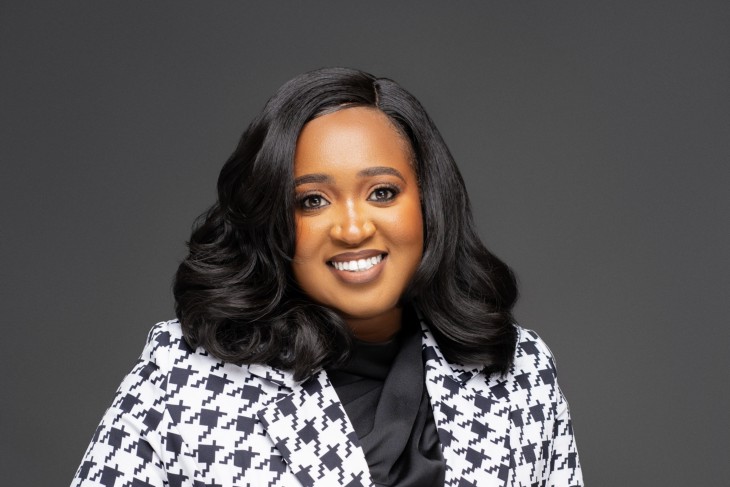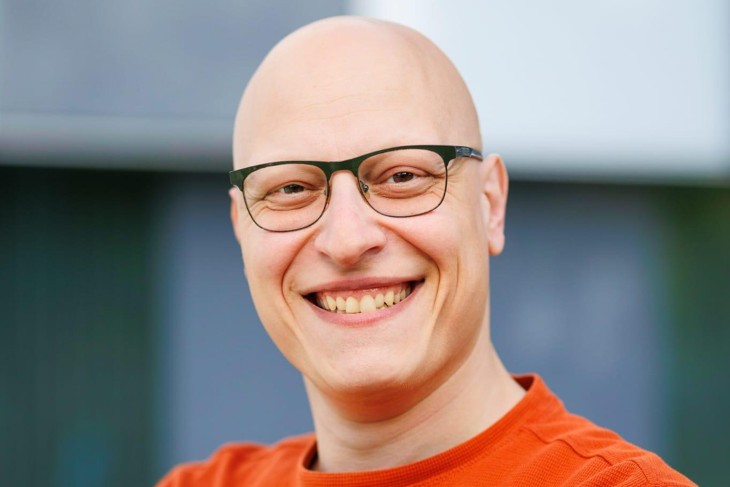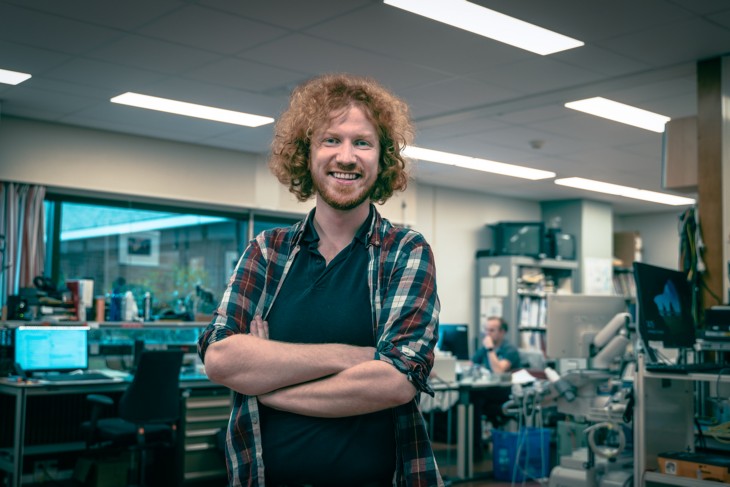What are the first three words that come to mind when you think about your student years?
- Emmilie

Freedom, growth, and friends.
Why freedom?
- Emmilie

I could carve out my own path: both in my studies and free time. Sometimes that was a bit frightening because I wasn’t always sure if I was making the right decisions. But that was also empowering: I decided what to do, how, and when. In my Master's, I had the freedom to choose in what to specialise, and I picked the Management of Product Development track as I wanted to design physical products while considering the whole product development process.
What memory from your student time stays with you?
- Emmilie

I remember a professor showing us the iconic upside-down Heinz ketchup bottle and explaining how, in theory, the bottle was recyclable but, in practice, it wasn’t. The reason was a thin coating unnecessary for the structure of the bottle, which, however, made it easier for consumers to squeeze out the last bit of ketchup. Without that coating, the ketchup stuck to the sides, and consumers found that annoying. But the coating made the whole bottle non-recyclable. I thought: if such small convenience-based decisions have huge environmental consequences, what can we do? I knew I wanted to solve these kinds of challenges.
And you are now a sustainable packaging specialist at Now New Next. What do you do?
- Emmilie

I help companies make their packaging more sustainable. Recently, I worked on a project where we designed a plastic-free container for fries, using a plant-based coating. That means it won't leave harmful microplastics behind if it ends up in nature.
I am the first point of contact when a company requests more sustainable packaging: I make a plan and advise on the next steps. My job is so dynamic. One day I am developing a detailed strategy with a client, the next I am designing new packaging, and the day after I am co-hosting an episode of PakPraat, a podcast about packaging where we aim to inspire people to make packaging more sustainable.
It sounds exciting. Can you share a bit about your projects?
- Emmilie

In one of my current projects, I am helping a company launch a new line of sauces. They want a more sustainable bottle that fits their retailer’s requirements, isn't too expensive, and looks good. My team is making a detailed plan including design sketches, a digital model, and suggested materials for the new bottle, and we ensure it is production-ready.
Why did you choose this job?
- Emmilie

My graduation project was also related to sustainable packaging. During my studies, I created a LinkedIn account and connected with everyone I knew. When I posted that I was looking for a job, through contacts from my graduation project, I got connected with someone at Now New Next. Networking is important.
What have you taken from Industrial Design Engineering into your job?
- Emmilie

In my specialisation, I learned a lot about materials and production processes, basically the whole product lifecycle. Thanks to that I can make a smarter design. I consider weight, cost, logistics, and aesthetics: if a bottle can be recycled but doesn’t appeal to consumers, they won’t buy it, so it isn’t a good design.
And what did you learn on the job?
- Emmilie

Visiting clients’ production sites has taught me a lot. I see their machines and that helps create manufacturable designs. For example, I might come up with a design switching from plastic to paper, but if the company has just invested in expensive equipment that works only with plastic, I need to adapt it to their setup.
What do you want to achieve professionally in 10 years?
- Emmilie

When people across Europe think about sustainable packaging, I want them to think of me. I know that is ambitious, but it would be amazing. Making packaging sustainable is my mission. All products in the supermarket are packaged: imagine the waste. I want to make sure that packaging can be reused or skipped altogether when it isn’t needed.
What is your advice to students?
- Emmilie

Studying Industrial Design Engineering leaves the door open for different career paths. My advice is to meet people and try things: those experiences and connections are just as valuable as what you learn in class.
Come study at the University of Twente
Did you like this article? Then you might find these study programmes interesting as well.
Related stories
 student GraduatesFrom student to geospatial consultant: “I support food security and emergency response.”Stella is a geospatial consultant at the UN Food World Programme, the world’s largest humanitarian organisation bringing food assistance during emergencies. She completed the Master’s in Geo-Information Science & Earth Observation at the University of Twente.
student GraduatesFrom student to geospatial consultant: “I support food security and emergency response.”Stella is a geospatial consultant at the UN Food World Programme, the world’s largest humanitarian organisation bringing food assistance during emergencies. She completed the Master’s in Geo-Information Science & Earth Observation at the University of Twente. student GraduatesFrom student to integrated circuit design engineer: “I design chips that support people’s health.”Oğuz is an integrated circuit (IC) design engineer at Sencure, a start-up developing chip technology for wearable medical devices. He completed the Master’s in Embedded Systems at the University of Twente.
student GraduatesFrom student to integrated circuit design engineer: “I design chips that support people’s health.”Oğuz is an integrated circuit (IC) design engineer at Sencure, a start-up developing chip technology for wearable medical devices. He completed the Master’s in Embedded Systems at the University of Twente. student GraduatesFrom student to biomedical engineer: “I keep hospital equipment safe and reliable.”Ben is a biomedical engineer at the ZGT hospital in Hengelo and Almelo. He completed the Master’s in Biomedical Engineering at the University of Twente.
student GraduatesFrom student to biomedical engineer: “I keep hospital equipment safe and reliable.”Ben is a biomedical engineer at the ZGT hospital in Hengelo and Almelo. He completed the Master’s in Biomedical Engineering at the University of Twente.

